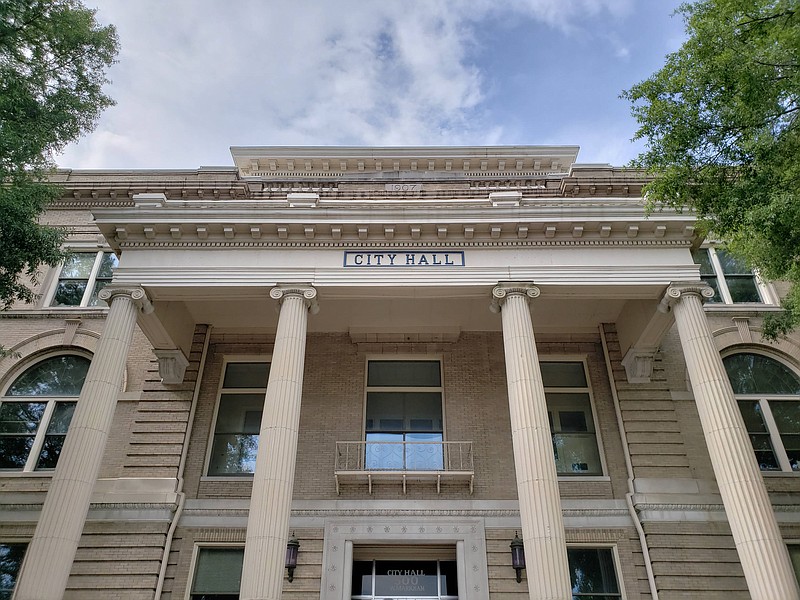A task force is set to tell the Little Rock mayor and board today that the city should keep its hybrid government form, give the mayor more power, reduce the board size and replace the at-large board spots with regional ones.
Little Rock's form of government is a hybrid between a city manager form and a mayor/council form, with a city board composed of seven ward representatives and three at-large members who are elected citywide. The city board voted in December to create a group to study the city's form of government.
The 11-member task force began meeting in April.
"On behalf of my colleagues on the Study Group, I would like to thank you for entrusting us with a charge to recommend the best form of government," chairman Rick Campbell wrote in a letter to Mayor Frank Scott Jr. and the city directors Friday.
The report notes that moving to a mayor-council form would require significant changes in state law as well as create more elected positions, which would be costly.
Reader poll
Should the city of Little Rock implement the changes to its government structure recommended by the task force?
- Yes
- No
161 total votes.
The city can achieve certain qualities of the mayor-council form such as instilling more accountability and authority within the mayor's office, more equitable representation on the board, and a government that it is more responsive to the voters' will and the city's needs, according to the group's conclusions.
The report recommends giving the mayor the authority to nominate, hire or remove the city manager "without precondition," and to nominate and hire the city attorney subject to confirmation by a majority of the city board. The city board would be able to override the city manager's removal with a two-thirds vote.
The report also recommends reducing the size of the city board to eight positions, with six ward representatives and two from regional districts.
At-large representation was the factor of city government that most divided the task force and people who spoke at its five public forums. A majority of the task force ultimately concluded that shifting to regional district representatives would be the way to preserve the best aspects of at-large representation while addressing concerns some residents have raised about the structure.
Additionally, the report recommends establishing a requirement that city director candidates receive at least 40% of the vote in their respective elections.
The task force's process included reviewing the results of two previous studies Little Rock officials initiated on the form of government, hearing from experts including Hendrix College professor Jay Barth and Arkansas Municipal League Director Mark Hayes, and distilling comments from the public forums.
Task force members also had a variety of opinions, member Ann Marshall Grigsby said Monday.
"It has been more arduous than I thought it would be," Grigsby said of the group's months-long study and discussion.
The city last modified its form of government in 2007, after voters approved a ballot referendum that made the mayor's office a full-time position with a six-figure salary.
About two weeks after taking office in January, Scott announced that he would use that ordinance to restructure City Hall. Now, six of the 14 department heads report directly to him rather than to City Manager Bruce Moore.
Metro on 10/29/2019

